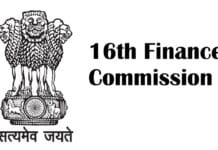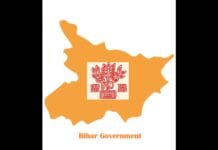Cabinet Secretary TV Somanathan opened up his mind on the prevailing scenario of the bureaucracy in the country. He emphasized on the need to differentiate between “bona fide risk-taking” and “mala fide risk-taking” by officers in their jobs. He didn’t mince his words in acknowledging the fact that there exists a dichotomy in public interest and the interests of the political masters that often leads bureaucrats to avoid taking risk for the fear of consequences even for making bold decisions in public interest.
Somanathan boldly admitted that lateral entry will become a necessity in the future. His point is simple: the same set of generalist civil servants cannot perform specific tasks at the apex level.
The Cabinet Secretary took up these tricky issues while addressing civil servants from across the country during the plenary session on Civil Services Day. Somanathan said that the thinking that the good generalist can do everything is no longer producing desired results. This gap is being bridged partly through the capacity building programmes and partly through lateral entry.
“I do not think that the same set of general list civil servants recruited at a young age can perform every task in the govt. At the apex level, there will be tasks where we need to take people on lateral entry,” he opined.
Somanathan acknowledged the fact that there is a doubt in the mind of the officers that if they take bold decisions in public interest, they might have to face consequences later due to audit objections, vigilance and internal complaints raised at a later stage.
That is what needs to be worked upon, according to him. He said that bureaucrats are discouraged from all risk taking because they assume that all risk taking is mala fide.
It has resulted in the elimination of bona fide risk taking from the system. Somanathan agreed that systematically it’s very difficult to take any bona fide risk. Somanthan had earlier suggested four criteria on the basis of which civil servants could judge the effectiveness of the service — protecting the constitutional order, impartial administration, translating the will of the elected govt into policy and promoting economic and social development. He appreciated the way Indian bureaucracy has carried on its duties of protecting the constitutional order by being politically neutral despite problems in transition of powers.
But he also hurriedly adds that a politically neutral but inflexible and incapable civil service is capable of protecting constitutional order but may do a lot of damage to economic development.
Somanthan lamented a glaring fact that the poor and the weak are often treated shabbily in government offices. He also referred to the prevalence of political interference in beneficiary selection or appointments.



















